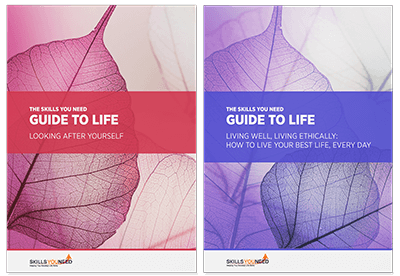8 Ways Reading Can Enhance Life Skills
See also: Reading with ChildrenThere’s nothing as good as getting lost in a delightful book. Reading can help a child escape from everyday stresses and transport them to another world. It grows their vocabulary, helps them sleep better, and minimizes cognitive decline.
Reading can also boost a child’s intelligence, improve their memory, and help them become a better writer. You've probably heard people say that reading is good for the brain, but did you know it can help improve life skills?
Here’s what it does.

1. Enhances Social Skills
Humans are social creatures but unique because their social interactions are not pre-programmed by instinct. Being socially adept is a learned skill. Reading makes a child more empathetic, a trait that helps them form better relationships.
It enhances their imagination and encourages them to make inferences about characters. Reading literary fiction makes a child more sensitive to emotional nuances and can improve their ability to understand other people’s mental states. This helps them handle complex social relationships better.
Reading can help a child understand and enhance their social experiences. They are able to detect and understand other people’s beliefs, thoughts, desires, and emotions.
2. Slows Down Cognitive Decline
Reading teaches a child to focus their attention on one thing and prevents their thoughts from wandering. Focused attention allows kids to choose and concentrate on one task at a time. It is a critical skill that enables them to perform different functions in their daily lives with accuracy.
Kids will age one day, and when this happens, their brains will slow down, making it difficult to carry out the simple cognitive tasks they once did. Not reading often will reprogram their memory and remap the neural circuitry, further contributing to cognitive decline.
Reading regularly and engaging in other mentally stimulating activities may help ward off severe forms of cognitive impairment, such as Alzheimer’s disease. Indulging in such activities reduces a child’s likelihood of developing Alzheimer’s later in life by 2.5 times.
Reading and writing can help keep away dementia, preventing symptoms such as plaques, brain lesions, and tangles. To ensure your child doesn't lose their ability to think deeply, sign them up for reading comprehension programs.
3. Improves Analytical Thinking
Analytical thinking means identifying a problem and solving it. It’s a high-level cognitive skill. Regular reading has a positive impact on brain function. It stimulates the brain and allows a child to think analytically.
When a child is actively engaged in reading, they gain different perspectives, ask questions, identify patterns, and make connections. And the more they read, the more they can easily spot patterns, which helps build their critical thinking and analytical skills.
Reading requires keeping up with different characters and remembering what happened and to whom. The reader also needs to make predictions and conclusions. This keeps their brain active.
The kids of today spend a lot of time on the internet, sometimes even more than adults. This keeps their brain in constant motion and makes thinking analytically harder. The brain is like a muscle; it needs regular exercise to remain alert and agile, and reading is a great way to achieve this.
4. Gain Knowledge
Educate yourself. As you read, you're feeding your mind with all kinds of information, and information often comes in useful when you don't see it... like fancy parties, business meetings, seeing your prospective partners, etc.
Having a lot of information doesn't merely make you a great communicator and improve your career prospects. Your capacity to navigate the world is primarily determined by the amount and type of knowledge you possess.
5. Finding yourself
Books serve as gateways to new worlds. They get the power to widen your horizons, influence your approach to others and reality, and introduce you to different ways of working in daily life.
One of the many benefits of reading is that it contributes to building your personality. You determine what you want as you read. You take bits and pieces from imaginary people you care about. Reading Sherlock Holmes, for instance, can motivate you to pursue a career as an investigator or just to become much more attentive and logical.
Whenever we watch tv or a documentary, all of the information is shown to us on the screen; we don't have to imagine anything. A book is nothing more than words on a page in its purest form, and we must rely on our imaginations to bring the words to life. This has a huge impact on our imagination and creativity.
6. Reduce your stress levels
According to studies, reading for only six minutes can reduce stress by up to 68 percent. In fact, reading relieves tension more effectively and quickly than other traditional stress-relieving techniques like listening to songs, walking the dog, or drinking a cup of tea.
This, according to experts, is due to the fact that being immersed in the realm of a book relieves muscle and cardiac tension. Reading may help you in getting a sufficient amount of sleep as well as reduce stress.
Countless people use the internet before going to sleep, but displays can keep you awake at night and make sleeping difficult. However, books can aid in better sleep. Reading helps you unwind and convey to your brain that it's time to go to bed.
7. Read some books if you wish to expand your vocabulary
It's far easier to absorb vocabulary from literature than it is to memorize dictionary definitions. This is due to the fact that you are memorizing the words in context. Because the words make sense in the light of whatever you're reading, they're easier to recall afterward.
8. Strengthens the brain
Another fantastic advantage of reading is that it strengthens your brain!
As you read anything, your synapses are reactivated. Your brain can remember factual details like characters, storylines, and supporting characters when reading. You're making new memories while your brain keeps this content. This signifies that new synaptic connections are being formed and existing connections are being reinforced, hence improving your memory.
Further Reading from Skills You Need
The Skills You Need Guide to Life
This two-part guide is an easy-to-read summary of the essential skills you need for a healthy mind and body.
The first eBook, Looking After Yourself, covers some of our most popular content and will help you to live a happier, healthier and more productive life.
The second eBook, Living Well, Living Ethically, considers how you can live your best life all the time. It helps you to answer the question: how can I avoid having too many regrets about my life?
About the Author
Rafia is a content writing guru at Contentrist. She loves to write on different topics and is adept at IT as well. In her free time, she likes to travel and explore different parts of the world.

